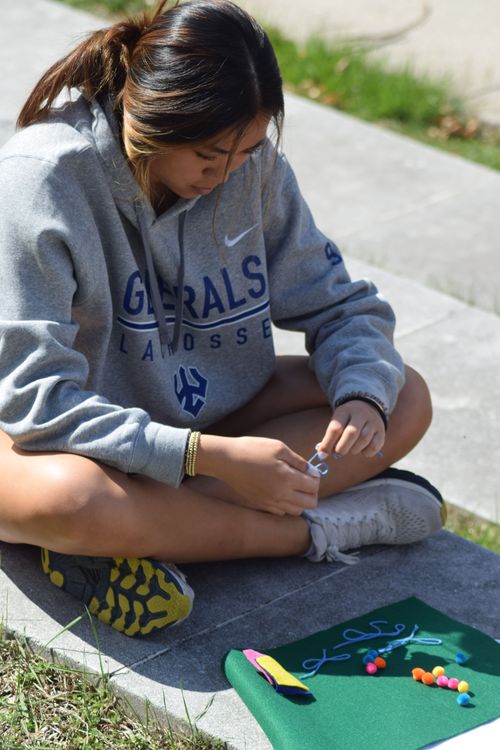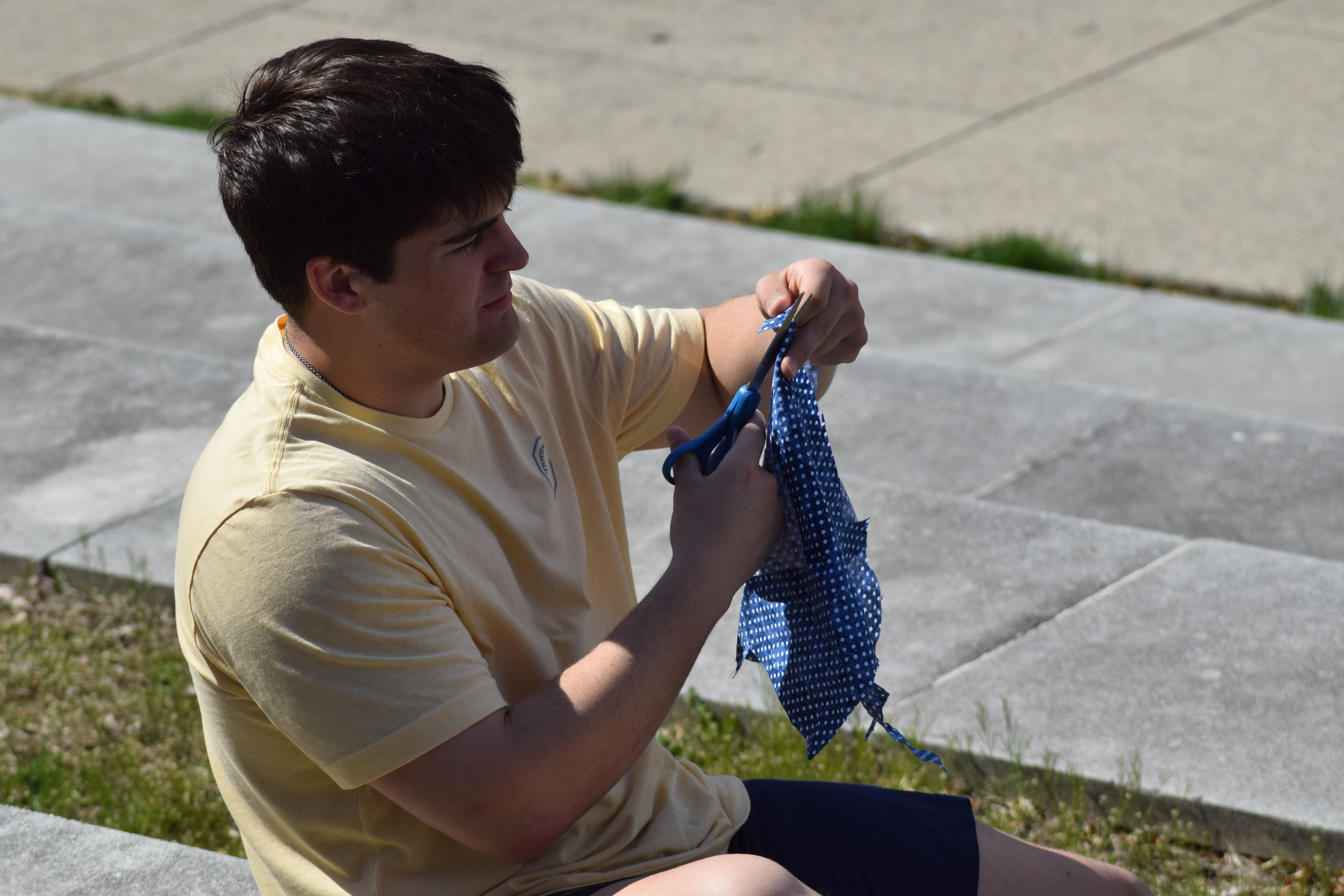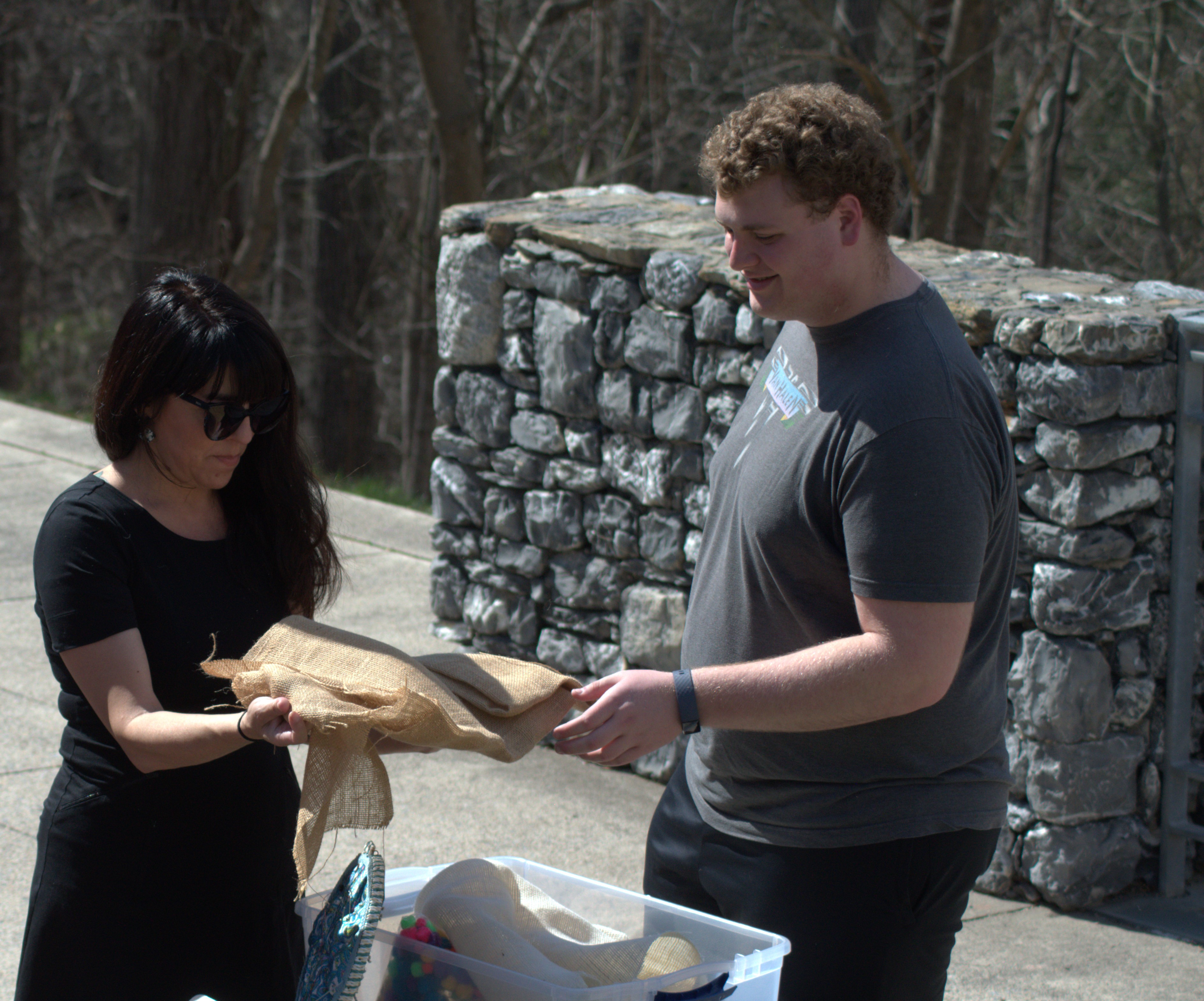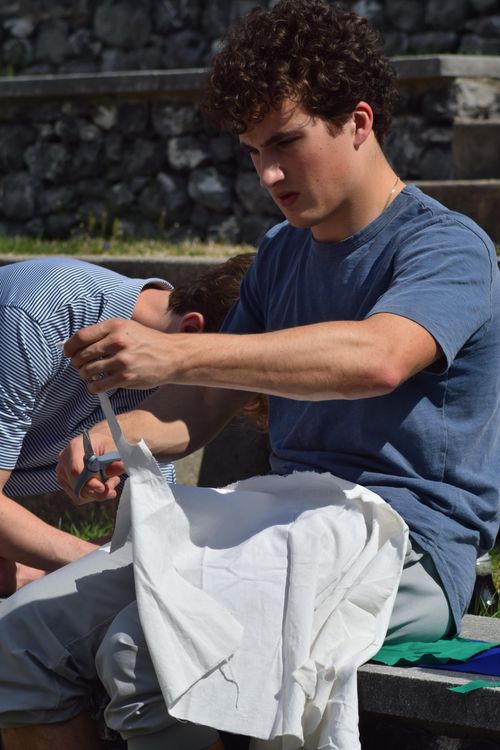
Learning to Listen
Prof. Green said it can be difficult to understand how fear can paralyze oppressed people whose narratives have been silenced by the victors. But, she said, it’s possible to resist erasure and tell stories that touch people who are willing to listen and learn. “You have to be daring. You have to be willing to tell your kid or your grandkid a story that could potentially put them in harm,” she said in an interview. “There is a range of ways that people can pass on these stories, and it can be used from acts that don’t even seem political to the acts that are very consciously political.”
Students in Prof. Green's class held an arpillera workshop. Arpilleras, Spanish for burlap, are tapestries of colorful fabric scraps and stitching that tell stories. Working-class women in Chile used tapestries to tell their own stories of trauma they experienced while living under a dictatorship. Green's instructions to her students were simple: “My suggestion was for them to tell a story that they would want to tell.”
“Silences are just as, if not more, insightful into who has control and who does not at a given time”—Evan Clark


“Because memory, whether personal or collective, is subject to manipulation, history and memory have a limited ability to access the past”—Grace Kim

“However, this class has introduced to me the realization that in retrospect, that one culture’s hero could be another culture’s enemy”—Brody Grant


“All throughout American history, the population in power … has pushed a version of history that is incorrect”—Julian Beaujeu-Dufour

“When history becomes a settled narrative, the memorialization or public memory on the topic becomes hard to break”—Jake Winston



“If we don’t continue to remember the past, we are unable to learn from it. And if we don’t learn from history, we are prone to repeating it. That could result in more genocides, losing millions and millions more innocent lives”—Jack Johnson

“Groups with common identities can pass down their own narratives for generations”—Hannah Shiffert

“If historical events were always free, clean, and straightforward, why would history be interesting to study? I think the beauty of studying the past can often be found in the chaos”
—Patrick France
